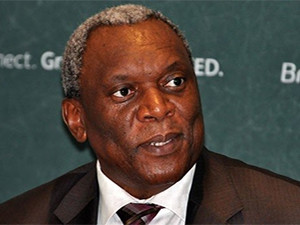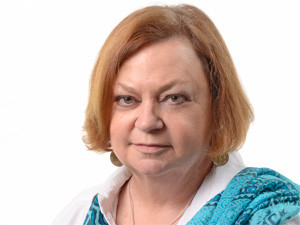
Telecommunications and postal services minister Siyabonga Cwele's budget vote speech in Parliament yesterday failed to impress market watchers, who say many of the initiatives raised by the minister should have been completed "years ago".
Ovum analyst Richard Hurst says the speech - similar to that of communications minister Faith Muthambi's budget speech on Wednesday - focused heavily on what will be done in future, but was light on details about what has been achieved to date.
"A lot of the statements made by the minister are pretty noble, but these are also things that we expected to hear. Unfortunately, overall, the speech wasn't very enlightening and lacked clarity about government's ICT initiatives," says Hurst.
In his address, Cwele highlighted government's broadband rollout efforts under the SA Connect initiative, saying the Department of Telecommunications and Postal Services (DTPS) would begin with phase one of broadband rollout in eight rural districts around the country. The objective, he said, would be to deploy scalable broadband infrastructure to connect all government institutions in these districts over the next three years.
"At the same time, we are finalising the business case and funding plan for phase two of broadband rollout for the rest of the country to be implemented from 2016 until 2020," Cwele noted. He added, in the current financial year, the DTPS has been allocated R200 million to begin connectivity rollout in the eight districts.
However, Hurst notes this and many of the other points raised by Cwele reflect government's acknowledgment of what ICT should do and could do for the electorate, but say little about what is being done. "These are all things that should have translated into action many years ago, so the minister's statements are largely very placid and nothing that we didn't expect."
Hurst argues government should reposition itself as an ICT enabler, rather than trying to take on an active role as an ICT player. "Government should be looking at some serious business cases where it can involve the private sector, which would enable and increase ICT penetration to the electorate.
"And I'm talking about simple things they could do within their policy framework, such as offering tax breaks to open the door for ICT players in these underserviced ICT areas. As such, government's involvement is just muddying the waters."
Not adding up
ICT commentator Adrian Schofield also feels Cwele did not say "anything new". In terms of broadband rollout in the eight rural districts, Schofield says government's numbers do not make much sense.
"Firstly, this should have been done and dusted a long time ago. Secondly, looking at the numbers, government wants to spend R300 million to do a 1 000km fibre rollout. This means Cwele's entire budget would be spent putting down about 5 000km of fibre and 2020 has been set down as a target to have it all in place. "The mathematics just don't make sense and I don't see this achieving the desired goals."

Schofield says he would have liked to have seen specific information around connecting government buildings and offices, which would then become local hubs for citizens to interact with government. "Government keeps talking about what it can and will do with connected infrastructure, but we need this connectivity to finally happen."
Schofield argues SA is fast losing any sign of being competitive in the ICT space, even compared to other African countries. "We find ourselves having to run in the hopes of catching up."
BMI-TechKnowledge analyst Denis Smit notes Cwele's announcement that government intends to increase the Universal Service and Access Fund levy, payable by licensed telecoms operators, to 1% of annual turnover - from the current rate of 0.2% - will be unpopular with operators.
"This is a fivefold increase and the question is always where have past payments gone? Most likely into the general fiscus and will be used for set-top box subsidies, but this increase will add a cost of about R1.5 billion a year to the local telecoms industry. While government needs to bring a developmental agenda to the table, operators will not like this."
Overall, Smit says, Cwele's speech contained very little implementation detail, which is disappointing.
Democratic Alliance shadow minister of telecommunications and postal service Marian Shinn, responding to Cwele's speech in Parliament, said for South Africa's ICT sector the past year has been "its most exasperating since the dawn of democracy".
"For more than two decades, stakeholders have participated in workshops, forums and policy reviews - often with high-powered international players - to advise the ANC how to make our nation the ICT powerhouse of Africa."
Shinn noted, for a brief period, at the end of the fourthParliament, there was an encouraging spurt of activity, but added at the start of the fifthParliament, the country took a leap backwards. "On a Cabinet whim, the former Department of Communications was split. This drastic move was contrary to international trends and the recommendations of the extensively researched ICT Policy Green Paper gazetted in January 2014."
Share